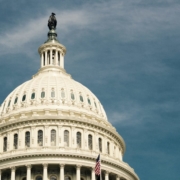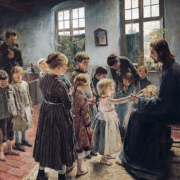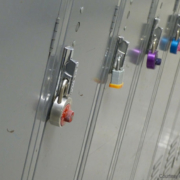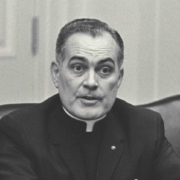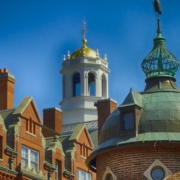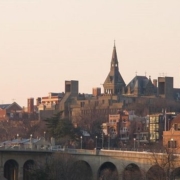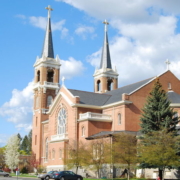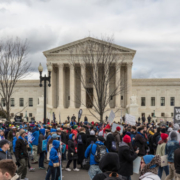Who Will Defend Catholic Education?
Recent lawsuits by teachers fired from Catholic schools are part of a growing threat to Catholic education. Our schools and colleges increasingly face harmful lawsuits, legislation, the loss of accreditation, and social rejection if they do not fall in line with ideologies that deny the nature of marriage, sexuality, even human life itself.
Catholic education is the Church’s most important means of evangelization. Is every Catholic educator and bishop prepared to defend it?
America once had arguably the world’s strongest network of Catholic education, but enrollment and Catholic identity suffered greatly in recent decades. Many Catholic schools today are easy prey for those who would hollow out Catholic education altogether. In many cases, the danger comes from within the Church.
It was four years ago, when a firestorm erupted in San Francisco, California, as Archbishop Salvatore Cordileone insisted that Catholic school teachers in the Archdiocese publicly uphold the faith, inside and outside of the classroom. He updated teacher contracts and faculty handbooks and created a new Office of Catholic Identity Assessment. Morality language in teacher contracts came as a shock and disappointment to some teachers, but it was applauded by Catholics who value the unique mission of Catholic education.
Now more dioceses are coming under fire from their own school leaders and teachers. A teacher fired from Bishop England High School in Charleston, South Carolina, for publicly defending abortion is suing the school, which is recognized by The Cardinal Newman Society for faithful Catholic education. The leaders of Brebeuf Jesuit College Preparatory School have filed a canon law complaint against Indianapolis Archbishop Charles Thompson, appealing his declaration that the school cannot call itself Catholic. Brebeuf refused to dismiss a teacher in a same-sex marriage; but nearby Cathedral High School, which properly removed a teacher for the same scandal, is now being sued by the teacher.
The Lyceum, a faithful Catholic school also recognized by the Newman Society, successfully fought back a local government threat that could have severely compromised its Catholic identity, based on false claims that Catholic teaching discriminates against people who claim same-sex attraction.
Even the federal Education Department and accrediting agencies pose dangers to Catholic colleges — especially those that are committed to orthodoxy — because of poorly devised diversity and nondiscrimination requirements.
In faithful Catholic education, there can be no compromise on the role of Catholic teachers as witnesses to the faith and the key elements that are expected in Catholic schools. Catholic schools are about the integral formation of students, and teachers play a key role in witnessing and providing a faithful example. Catholic teachers are called to prepare students for sainthood.
According to the bishops’ National Directory for Catechesis (pp. 231, 233), Catholic schools are required to “recruit teachers who are practicing Catholics, who can understand and accept the teachings of the Catholic Church and the moral demands of the gospel, and who can contribute to the achievement of the school’s Catholic identity and apostolic goals.”
If the role of the Catholic teacher is so essential, then it must be protected — not only by fighting lawsuits and legislation, but by doing everything possible internally to ensure that a school or college always acts consistent with Catholic values, which is essential to asserting protection for religious freedom under the First Amendment and various federal and state laws.
A good starting place is for Catholic school leaders to review model language for “morality clauses” in teacher contracts. The Newman Society compiled examples after reviewing the policies of more than 125 dioceses.
Much can be done by lay Catholics also, to help defend and renew faithful Catholic education. When Archbishop Cordileone made strong efforts to change the direction of the schools in his diocese, he faced significant backlash but also had strong and valuable support. When a secular San Francisco newspaper put up an online poll asking if Archbishop Cordileone should be removed from his position — no doubt expecting the majority of respondents to display outrage toward the Archbishop — Catholics turned the poll overwhelmingly in favor of his efforts.
The road ahead for Catholic educators will not be easy, but Catholics everywhere should rally behind and pray for these faithful school leaders. Pray that our bishops and Catholic educators will have the fortitude to insist upon faithful Catholic education, which, when done well, is a great blessing for young people and for our Church.
This article first appeared at The National Catholic Register.

